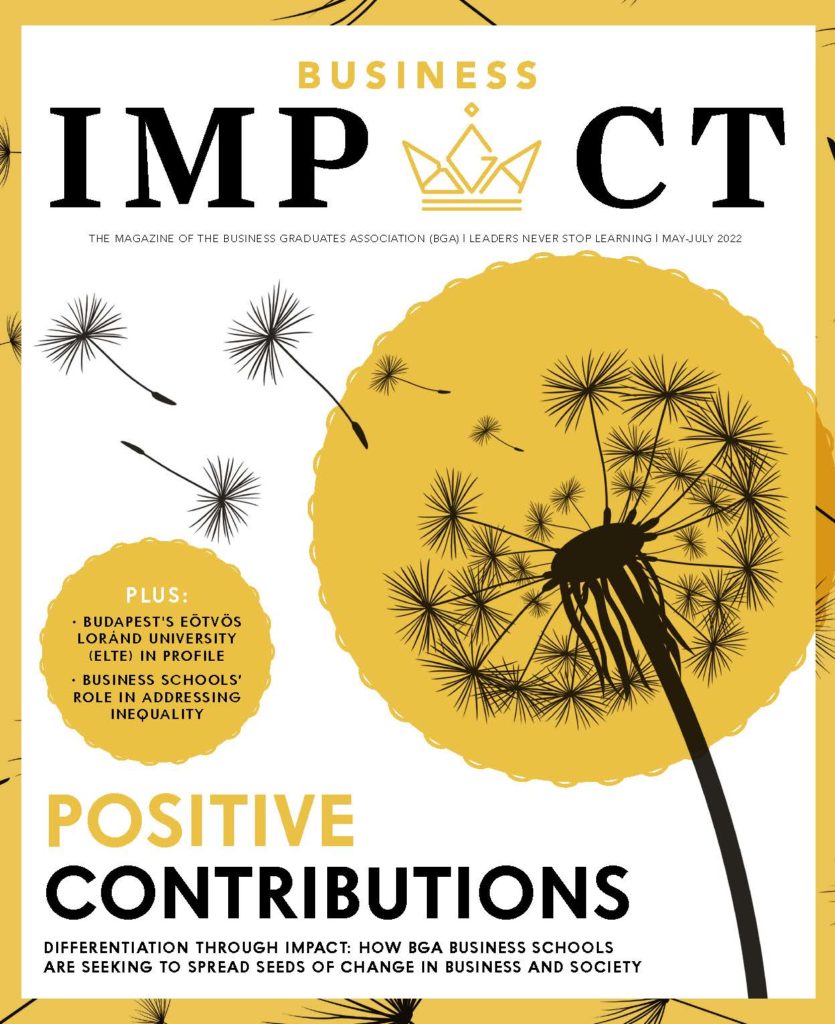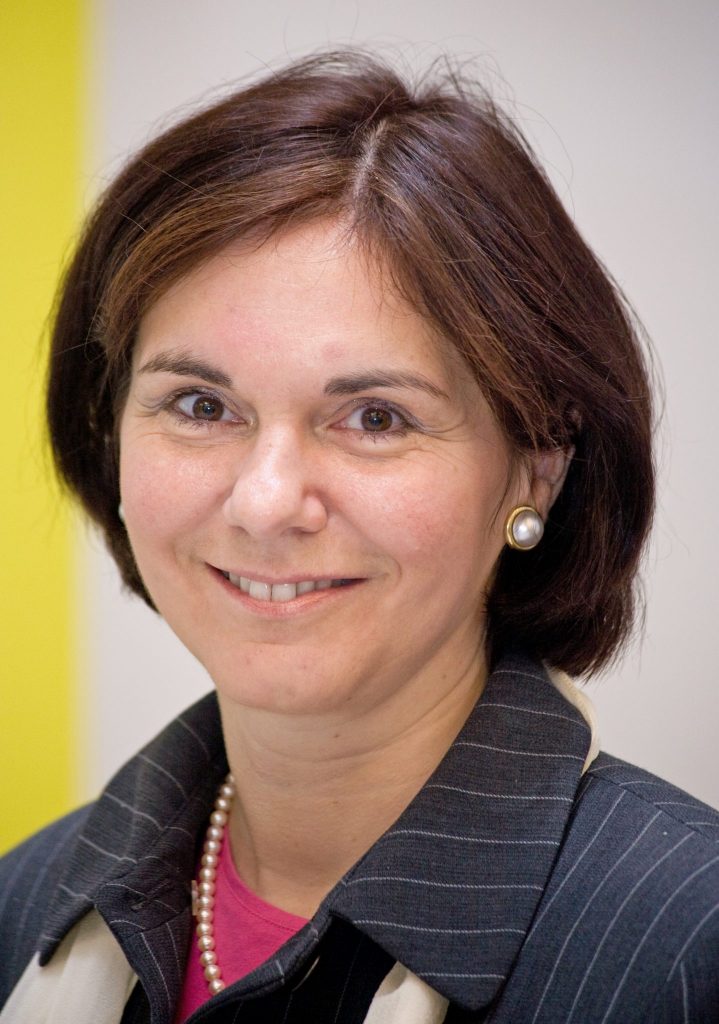Lifelong learning research from AMBA & BGA shows that more than a third of graduates have sought to continue their education beyond their studies, and outlines their areas of interest. David Woods-Hale reports
From quarantined students to a rapid migration to online teaching and learning, business education experienced its fair share of disruption in 2020.
Yet, during this tumultuous year, AMBA & BGA was able to carry out a 360-degree portfolio of research, looking at the perspectives of Business Schools, employers, students and graduates as they sought to acclimatise to the conditions imposed by the Covid-19 pandemic. The research delved into the need for greater technological innovation – both in terms of course delivery and digital skills – and explored respondents’ views on how successfully the business education landscape is evolving to meet the ever-changing needs of stakeholders at all levels.
This section of the research focuses on the views of 2,110 MBA graduates, surveyed in the spring and early summer of 2020, on their satisfaction with their MBA and their continuing relationships with the Business Schools at which they studied, in relation to lifelong learning and their continuing development.
Graduate satisfaction, post-MBA
Graduates’ sense of satisfaction with their MBA qualification was gauged in an earlier part of the year’s research. Encouragingly, 71% of those polled were either ‘very satisfied’ or ‘fairly satisfied’ with the impact of their MBAs on their careers to date. At the other end of the scale, 10% were either ‘fairly dissatisfied’ or ‘very dissatisfied’.
Following this, participants were asked for their opinion on the areas in which they believed the MBA had added the most value to their career prospects. Among respondents, 88% agreed that they have ‘gained substantially more skills to help them do business better’ as a result of completing the MBA. Meanwhile, 81% agreed that ‘the skills they learned during their MBA have helped them be more mentally resilient’, and 74% believed ‘they have been able to develop all the business-related skills they wanted’ as a result of completing the qualification.
In terms of salary expectations, graduates were less sure as to how far their MBA has made an impact. Just over a third (23%) neither agreed or disagreed that ‘they felt equipped to reach the salary they wanted to achieve in the future’ – and 11% actively disagreed with this statement.
When the sample was segmented to only include the findings for MBA graduates that had completed their qualification less than a year before taking the survey, the results revealed a higher level of satisfaction, compared with the rest of the sample. In all the areas measured, recent graduates are either one or two percentage points higher in agreement that they had achieved the outcomes listed, on account of completing their MBA programme, than those that graduated more than a year ago.
Survey participants were also polled on the difference that their MBA made to them in terms of their behaviour in the workplace. The top answer, cited by 68% of MBA graduates, was ‘I was more confident about myself’, followed by ‘I was better at resolving problems by finding new solutions’ (62%), and ‘I was more prepared to work in a highly competitive environment’ (58%).
‘If I were to do an MBA again…’
Graduates were asked: ‘On reflection, if you were to do an MBA again, which of the following aspects would you like to see more of, or improved?’ and were provided with options ranging from ‘better quality of teaching’, to ‘more confidence building’.
Overall, the largest proportion of respondents (54%) said they would have liked ‘more networking opportunities’; 37% would have liked ‘more knowledge and skills specifically to help them start a new business’; 34% would have liked ‘more content on how to run a profitable business’; and 31% would have liked ‘content that was more appropriate to the industry in which they work’. At the other end of the scale, the smallest proportion of respondents (22%) would have liked ‘better quality of teaching’. In an open-ended question, graduates were then encouraged to share other thoughts as to what they would like to see more of in their MBA programmes, if they were to study for the qualification again.
Answers were diverse, but responses comprised the following:
• Case studies that inspire students to find solutions and help in developing a way of thinking.
• More practical case studies with a current or recent focus, relevant to today’s and future industry needs.
• More information about new disruptive businesses.
• To shed more light on current local and global challenges, and how to
handle them.
• More technological updates and a means to learn how to improve
business skills in such a fast-paced technological environment.
• Equip me to manage jobs that don’t yet exist and to look more into the future.
• Develop emotional intelligence and cultural intelligence.
• More practical experience of running an SME, or starting an SME.
• Greater oversight of managing a business’ finances.
• The reality of the job market and how to understand that an MBA doesn’t put you at the top of the food chain.
Remaining ahead of the skills curve
Business changes continually, as do individual career paths, so in a volatile world MBAs must keep abreast of evolving trends and issues constantly, and make sure they are nurturing and enhancing the skills they need continuously, in order to succeed in their career trajectories.
With that in mind and considering these postgraduate reflections, Business Schools have an opportunity to remedy knowledge gaps in their alumni by keeping contact with graduates and offering access to lifelong learning in a variety of ways.
The survey therefore sought to find out graduates’ views on the subject of lifelong learning as well as the means and frequency with which they are currently accessing it from their alma mater, as well as other Business Schools and further providers in the market.
To start off with, participants were asked if they had accessed any lifelong learning opportunities through the Business Schools from which they graduated. Lifelong learning opportunities were defined as courses, modules and other initiatives related to MBA study that graduates can complete or attend after completing their MBA and throughout their careers. Just over a third (34%) of participants had accessed lifelong learning post-MBA from their own institution.
Participants were then asked to share some information, in open-ended questions, about the nature of the lifelong learning options they had accessed. Formats cited included executive education programmes, masterclasses and alumni weekends, while topics cited included ethics, presentation skills, mentoring and negotiation.
Satisfaction with lifelong learning to date
Considering the myriad of courses and lifelong learning initiatives in which MBA graduates had partaken, the survey moved on to examine their levels of satisfaction with the options accessed.
Almost three quarters of alumni who had taken part in postgraduate lifelong learning opportunities from Business Schools said they were either ‘very satisfied’ (32%) or ‘fairly satisfied’ (41%) with what they had completed or attended. Less than 3% reported dissatisfaction with lifelong learning provisions undertaken.
Areas of interest for continued learning
Graduates were subsequently asked which subjects they would be most interested in, if their Business Schools were to offer additional management programmes to its MBA alumni.
Perhaps unsurprisingly, given the rapid evolution of the technology sector, MBA graduates are most interested in tech-related refreshers. The most popular topic cited by respondents was data analytics for managers (47%) closely followed by digital strategy (45%). Other popular topics among survey participants, included strategy execution (42%) global leadership (41%) and global strategy (39%).
Topics and modules that are most commonly core elements within traditional MBA programmes were of less interest to the survey sample as a whole, in terms of postgraduate lifelong learning or refresher courses. Less than a fifth were interested in completing additional management programmes with a focus on economics (19%) supply chain management (17%) strategic HR management (16%) business ethics (16%) statistics (15%) or accounting (12%).
Survey participants that selected ‘other’ were prompted to share what they would like to learn more about in their pursuit of lifelong learning. Answers put forward mirrored some of the courses that other participants had already completed (as evidenced earlier in the report), with suggestions encompassing diversity, project management, philosophy, presentation skills, crisis management, financial modelling, conflict resolution, game theory, branding and design, as well as culture and intercultural business.
Conclusions
If 2020 has taught us anything, it is that business continuity and success depends on leaders who know what they want to achieve and understand how they can make a difference in the world.
In conditions that remain volatile and uncertain, businesses are crying out for a new breed of leader to future-proof economies and innovate through complexity. This new breed of leader needs people skills, as well as focus – and this presents Business Schools with the challenge of developing these game-changing traits and relevant skills both while studying on a degree programme at the School and – as this survey confirms – throughout their future careers and lives. This challenge provides an opportunity for traditional business educators – Business Schools – but also for the corporate world and other training providers, who represent growing competition to Schools’ provision of executive and custom education. With adaptive learning and AI also emerging, ‘business as usual’ is no longer sustainable. Traditional Business Schools cannot continue without embracing fundamental change.
Having said that, this piece of research demonstrates that graduates, for the most part, are satisfied with their MBA experience, hold a high opinion of what their School has offered them after their graduations, and have ambitions to continue to grow and hone their skills.
The test which the Business School community will have to collectively pass is to take this thirst for ongoing development and compete – or collaborate – with the corporate world strategically, effectively and quickly.
This article has been adapted from a feature that originally appeared in Ambition – the magazine of the Association of MBAs (AMBA).






















